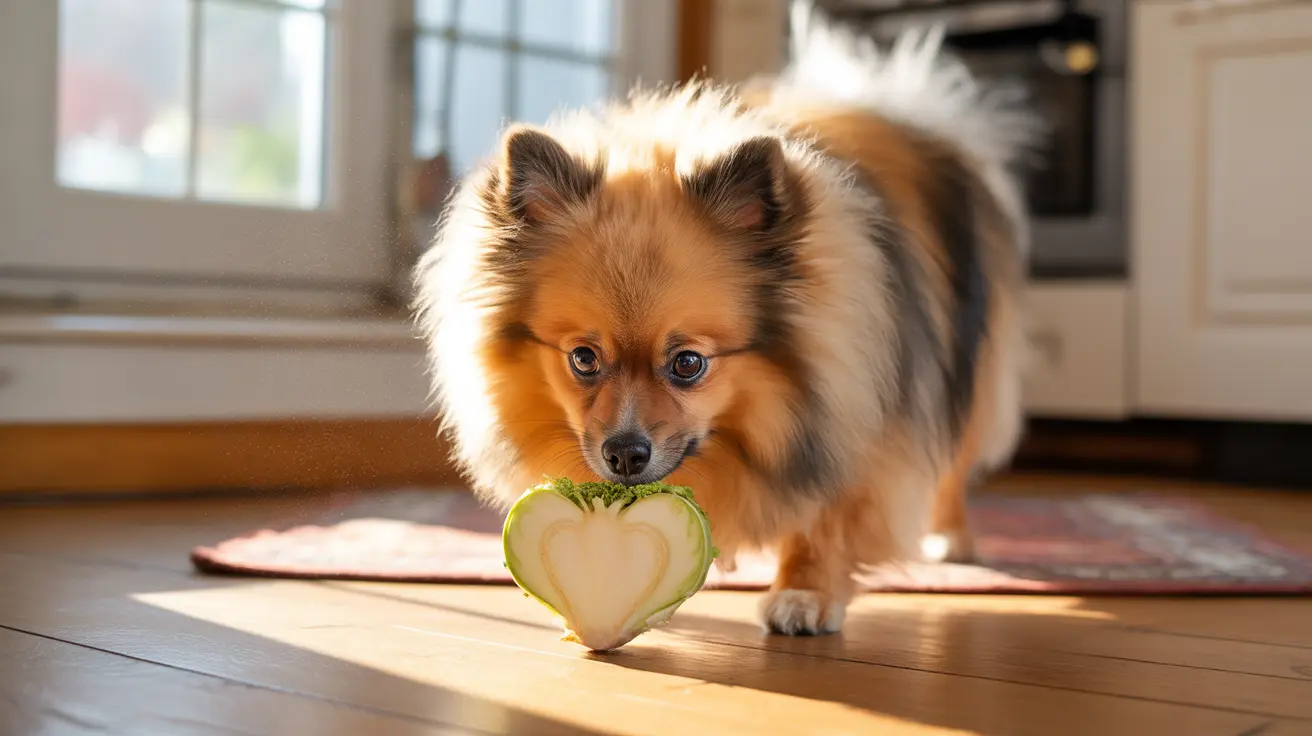If you're wondering whether dogs can eat kohlrabi, the good news is that this nutritious vegetable is generally safe for our canine companions. This lesser-known member of the cabbage family can offer several health benefits when properly prepared and served in moderation.
In this comprehensive guide, we'll explore everything you need to know about feeding kohlrabi to your dog, including its nutritional benefits, potential risks, and proper serving methods.
Understanding Kohlrabi and Its Nutritional Value
Kohlrabi, often called "German turnip," is a versatile vegetable packed with essential nutrients that can benefit your dog's health. This low-calorie vegetable contains vital vitamins and minerals, including:
- Vitamin C for immune support
- Vitamin B6 for brain function
- Potassium for muscle health
- Dietary fiber for digestive health
- Antioxidants for cellular protection
Safe Preparation Methods for Dogs
Proper Cleaning and Preparation
Before serving kohlrabi to your dog, follow these essential preparation steps:
- Remove the tough outer skin
- Wash thoroughly to remove dirt and pesticides
- Cut into small, manageable pieces
- Steam or boil for easier digestion (optional)
Serving Recommendations
When introducing kohlrabi to your dog's diet:
- Start with small portions
- Serve plain without seasonings or oils
- Monitor for any digestive reactions
- Limit treats to 10% of daily caloric intake
Health Benefits of Kohlrabi for Dogs
Incorporating kohlrabi into your dog's treat rotation can provide several health advantages:
- Low-calorie option for weight management
- Natural source of dietary fiber
- Immune system support through vitamins
- Hydration boost due to high water content
- Dental health benefits from crunchy texture
Potential Risks and Considerations
Watch for These Warning Signs
While kohlrabi is generally safe, be aware of these potential issues:
- Digestive upset from excessive consumption
- Choking hazards if pieces are too large
- Possible thyroid interference due to goitrogenic properties
- Allergic reactions in sensitive dogs
Frequently Asked Questions
Is kohlrabi safe for dogs to eat, and can they have it raw or cooked?
Yes, dogs can safely eat kohlrabi both raw and cooked. Cooking makes it easier to digest and reduces choking risks, but raw kohlrabi is also acceptable for healthy dogs when cut into appropriate sizes.
What nutritional benefits does kohlrabi provide for dogs?
Kohlrabi provides vitamin C, B6, potassium, fiber, and antioxidants. These nutrients support immune health, digestion, muscle function, and overall cellular health.
How should I prepare kohlrabi safely for my dog to avoid choking or digestive issues?
Remove the tough outer skin, cut into small, bite-sized pieces, and consider steaming or boiling to soften the texture. Serve plain without any seasonings, oils, or additives.
Are there any health risks or precautions when feeding kohlrabi to dogs, especially those with thyroid problems?
Dogs with thyroid conditions should limit kohlrabi intake due to its goitrogenic properties. Always introduce new foods gradually and watch for signs of digestive upset or allergic reactions.
How much kohlrabi can I give my dog, and should it replace any part of their regular diet?
Kohlrabi should only be given as an occasional treat, not as a meal replacement. Follow the 10% rule: treats should make up no more than 10% of your dog's daily caloric intake.
Remember to always consult with your veterinarian before making significant changes to your dog's diet, especially if they have existing health conditions or dietary restrictions.






